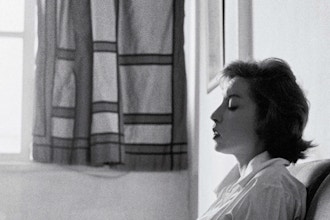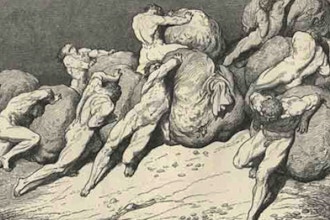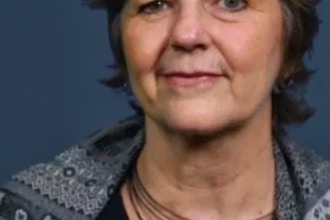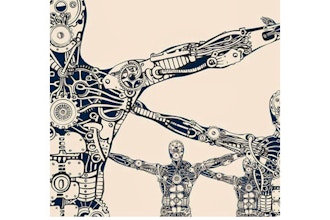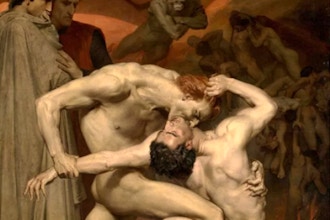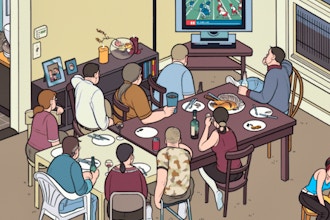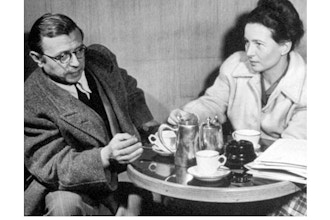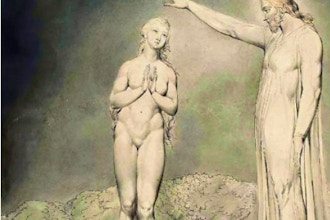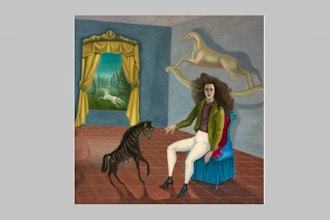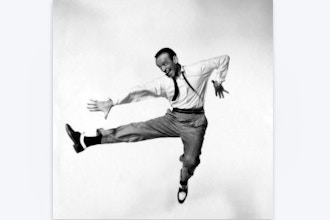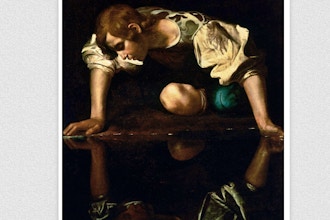Brooklyn Institute for Social Research
Upcoming Classes in NYC
The Brooklyn Institute for Social Research, established in 2011, offers liberal arts education and research opportunities to local communities while supporting young scholars. With a mission to engage various intellectual traditions, the institute aims to provide accessible education and foster active, engaged citizens.
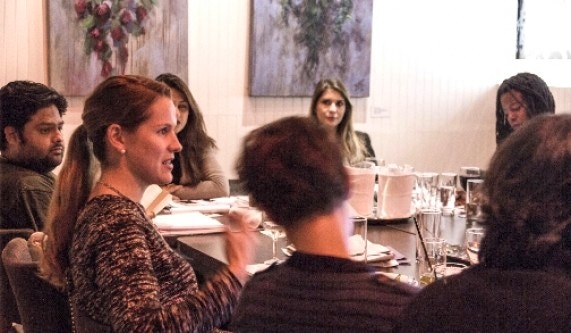
3 classes have spots left
The Abyss I am Made Of: an Intro to Clarice Lispector
Brooklyn Institute for Social Research @ 68 Jay St, Brooklyn, NY
The Abyss I am Made Of: an Introduction to Clarice Lispector Compared over the course of her life to Marlene Dietrich, Virginia Woolf, James Joyce, Franz Kafka, Rainer Maria Rilke, Arthur Rimbaud, a sphinx, a she-wolf, a “foreigner on earth,” and a hurricane, the Jewish Brazilian Clarice Lispector, born to Ukrainian parents who fled to Brazil from interwar pogroms, made an indelible stamp on the literature of her adopted homeland—and...
Hannah Arendt: The Human Condition
Brooklyn Institute for Social Research @ 68 Jay St, Brooklyn, NY
What does it mean to be human in the world today? Hannah Arendt’s The Human Condition (1958) is a provocative treatise on what it means to live on earth and share the world in common. Her study, originally intended to be titled Amor Mundi (Love of the World), investigates the central activities of human life—labor, work, action—and their corresponding realms—private, social, public. For Arendt, The Human Condition is about protecting spaces...
LaborTalks: Democracy in Chains
Brooklyn Institute for Social Research @ 247 West 37th St, New York, NY
The roots of neoliberalism are both political and intellectual. The post-World War II right-wing reaction to the New Deal and various emancipatory social movements, such as the Civil Rights movement, sought to not only elect conservative politicians and enact conservative policies, but also change the very rules of democratic governance—as historian Nancy MacLean writes in her highly lauded book Democracy in Chains: The Deep History of the Radical...
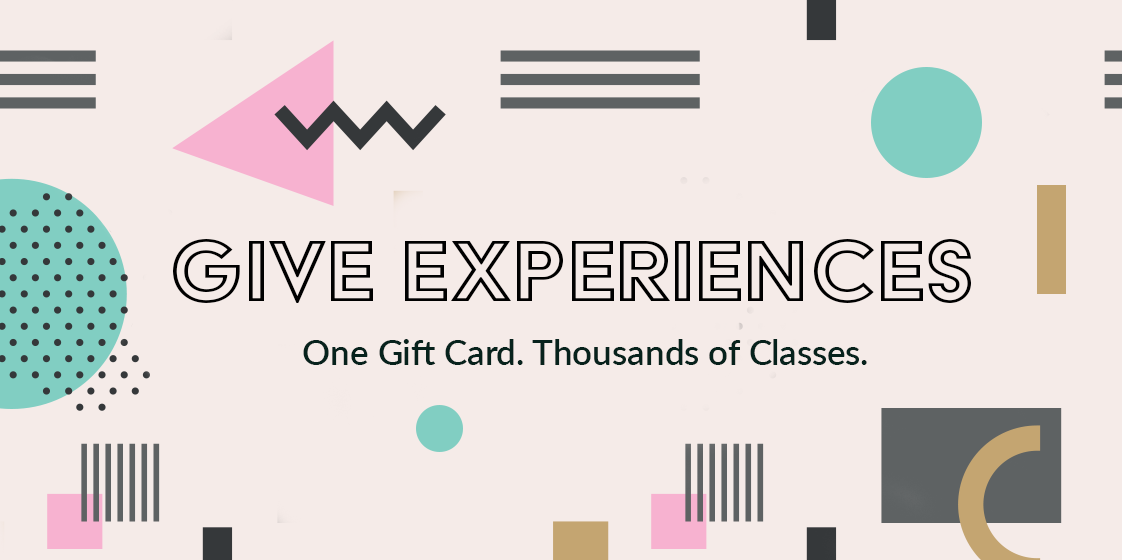
CourseHorse Gift Card
Thousands of classes & experiences. No expiration. Gift an experience this holiday season and make it a memorable one. Lock in a price with the Inflation Buster Gift Card Price Adjuster™
The Singularity: AI & the Post-Human Future
Brooklyn Institute for Social Research @ 119 N 11th St, Brooklyn, NY
Full Course Name: The Singularity: Artificial Intelligence and the Post-Human Future Alan Turing, whose Turing Test set the initial standard for artificial intelligence, mused towards the end of his life on the prospects of a truly superintelligent machine: “it seems probable that once the machine thinking method had started, it would not take long to outstrip our feeble powers…At some stage therefore we should have to expect the machines to...
Virginia Woolf: Embodiment and Novel Experiments
Brooklyn Institute for Social Research @ 230 5th Ave, Brooklyn, NY
In an essay called “Flying Over London,” Virginia Woolf imagines herself as a passenger on an airplane passing over the city. Her imagined journey becomes an occasion to think about both the lures of a fixed, constant subjectivity and the shifting currents of an unstable modernity. This fraught relationship with the self (and the flight from it) offers a crystalline lens through which to view Woolf’s experiments in writing and thinking the...
Nietzsche’s Critique of Morality
Brooklyn Institute for Social Research @ 323 Dean St, New York, NY
This course will consider these questions by examining Nietzsche’s distinctive and radical conception of philosophy and its history, as well as his views on the nature and value of knowledge and truth. We will begin by considering how Nietzsche’s attack on popular morality and philosophical moral theory go hand in hand with bold theses in metaphysics and epistemology. We will ask: How should we understand the difference between a morality and...
The Divine Comedy
Brooklyn Institute for Social Research @ 600 Vanderbilt Ave, Brooklyn, NY
Dante’s Divine Comedy follows the journey of the poet through hell, purgatory, and paradise. This epic Italian poem, composed between 1308 and 1321, is an allegory for the movement of the soul toward God. But it is also a multifaceted exploration of ethics, metaphysics, politics, love, order, chaos, poetic form, and the Classical literary tradition. In this course, we’ll read The Divine Comedy in translation—Inferno, Purgatorio,...
Separation Anxiety: Religion and the Modern State
Brooklyn Institute for Social Research @ 96 Berry St, Brooklyn, NY
The separation of church and state is often regarded as the hallmark of enlightened democracy, a guarantor of a secular order that protects freedom of conscience by rendering the state indifferent to questions of religious persuasion. While it was long assumed that modernization and secularization went hand in hand, the so-called “return of religion” in the late twentieth century has called this thesis into question. Rather than a neutral political...
Roland Barthes: Beyond Interpretation
Brooklyn Institute for Social Research @ 558 St. Johns Place, Brooklyn, NY
This course—an introduction to the thought of the French philosopher, literary theorist, linguist, and semiotician—asks how Barthes, who began his intellectual life as a committed disenchanter, evolved from architect of structuralist demystification to theorist of the scintillant, a field of investigation that encompassed questions of affect including pleasure, pain, bliss, love, and mourning. The rubric of the scintillating spurred Barthes’s...
Social Reproduction Theory: An Introduction
Brooklyn Institute for Social Research @ 20 Jay St, Brooklyn, NY
In the 1970s, a group of Marxist-feminists demanded “wages for housework”: payment for the unpaid work done in the household and the family. The demand echoed a critique of political economy going all the way back to Adam Smith’s division of productive and “unproductive” labor and helped open up a series of new questions around what is today called “social reproduction.” What labor, exactly, counts as “productive” and why? Why is...
An Anatomy of Melancholy
Brooklyn Institute for Social Research @ 68 Jay St, Brooklyn, NY
What is melancholy? And why does this term of art shadow the activities of literature and philosophy? Historically, “melancholia” referred to a disorder resulting from an imbalance of the body: an excess of black bile thought to cause sustained sadness, sudden and inexplicable anger, sullen fits, and intense imaginative capability. Melancholy could descend on anyone at any time, irrespective of position or gender—though artists, scholars, lovers,...
French Existentialism: Beauvoir and Sartre
Brooklyn Institute for Social Research @ 68 Jay St, Brooklyn, NY
For Jean-Paul Sartre and Simone de Beauvoir, the fundamental philosophical problem of the modern age was answering Friedrich Nietzsche’s dictum: god was dead, and so was, as a consequence, traditional western conceptions of morality, justice, and truth itself. In the cafes of occupied and post-war Paris, Sartre, Beauvoir, and their cohort of fellow existentialists attempted to meet Nietzsche’s challenge: to reimagine the basis of morality...
John Milton: Paradise Lost
Brooklyn Institute for Social Research @ 68 Jay St, Brooklyn, NY
What, if anything, should paradise mean to us right now? Paradise Lost, John Milton’s seventeenth-century epic of the Fall, which begins with “man’s first disobedience,” constitutes a heroic attempt to “justify the ways of God to men.” A poem that shifts from rebel angels waging war in heaven to the pageantry of hell to Adam and Eve in the lush confines of the Garden of Eden, Paradise Lost wrestles with questions of human...
Gothic Feminism: Repression, Transgression, and Range
Brooklyn Institute for Social Research @ 20 Jay St, Brooklyn, NY
Madwomen, ghosts, witches, monsters—the gothic genre has long been a vehicle for representing female characters deemed too transgressive for inclusion in “respectable” fiction. Indeed, much of what makes the gothic dark and mysterious, what inspires dread, is how it reckons with thwarted female autonomy, repressed desire, and past injustice. It’s no wonder the genre has proved so fruitful for feminist theory: in its tales and archetypes,...
Platform Capitalism
Brooklyn Institute for Social Research @ 68 Jay St, Brooklyn, NY
A somewhat new, and highly profitable, feature of the economic landscape is the “platform”—a digital infrastructure powered by algorithms and automation that enables users to connect and interact. Making platforms valuable are zero marginal costs, non-linear scaling effects, and the economics of networks—all of which lead to positive feedback mechanisms, winner-take-all dynamics, and dominance of the market by a single firm or technology....
Aristotle: Philosophy, Ethics, and the Order of Nature
Brooklyn Institute for Social Research @ 68 Jay St, Brooklyn, NY
Introduction to Aristotle: Philosophy, Ethics, and the Order of Nature For much of Western history, Aristotle was known simply as “the philosopher.” Systematic and extraordinarily wide-ranging, Aristotle’s thought encompasses everything from metaphysics to politics to psychology to logic to poetic tragedy—and even plant biology. A student of Plato, Aristotle originated a philosophy very different in orientation from Platonic idealism, one...
Forgiveness and the Unforgivable: Religion, Literature
Brooklyn Institute for Social Research @ 68 Jay St, Brooklyn, NY
Forgiveness and the Unforgivable: Religion, Literature, Philosophy What constitutes an apology? Are certain kinds of acts unforgivable—and, if so, why? Who, indeed, has the power to forgive? In this course, we’ll set these questions in historical context, beginning with Bishop Joseph Butler’s eighteenth-century sermons, then exploring discussions of resentment in Nietzsche and guilt in Dostoyevski, before turning to post-Holocaust literature...
Alan Turing: Computers and Artificial Intelligence
Brooklyn Institute for Social Research @ 96 Berry St, Brooklyn, NY
What makes a machine a computer? What is an algorithm, and why is it essential to computation? Can an algorithm “learn”—and if so, is it possible to build an “electronic brain” that’s functionally indistinguishable from human intelligence? In this course, we’ll examine the foundations of computing—what a computer is; how it functions; and in what sense it’s “intelligent”—via a study of the work of mathematician and pioneering...
Dance, Dance, Revolution: A Political Intro to Dance
Brooklyn Institute for Social Research @ 106 Calyer St, Brooklyn, NY
“If I can’t dance, I don’t want to be in your revolution”—so, supposedly, said Emma Goldman. What is the connection between dancing and politics? Can dance, whether choreographed ballet, break dancing, or a spontaneous party, make a statement about society—or even, somehow, challenge it? In this course, we’ll explore the nature of dance and its possibilities as a mode of thinking, socially, politically, and aesthetically, about...
Ovid’s Metamorphoses
Brooklyn Institute for Social Research @ 68 Jay St, Brooklyn, NY
Ovid begins his Metamorphoses, “My soul would speak of bodies changed into new forms,” and it is the great theme of physical transformation that unites the poem’s many myths: humans becomes animals and plants, and vice versa; humans becomes stones and constellations; and humans change their sex. No poem from antiquity has so influenced Western European literature and art. Chaucer, Shakespeare, Milton, and Dante creatively raided Ovid’s...
-
Price Lock Guarantee
Secure your booking now and we'll match any price drop within 48 hours across all booking platforms, ensuring you never miss out on savings!
-
Earn 10% Reward Points
Maximize your savings with every purchase. Unlock rewards on every transaction, ensuring you get the most value out of your experience!
-
No Added Fees
Enjoy hassle-free transactions without worrying about additional charges. With us, what you see is what you pay - no surprises!
-
Curated Courses
Discover a curated selection of courses handpicked by experts in the field. Dive into quality content that suits your learning needs and interests!

